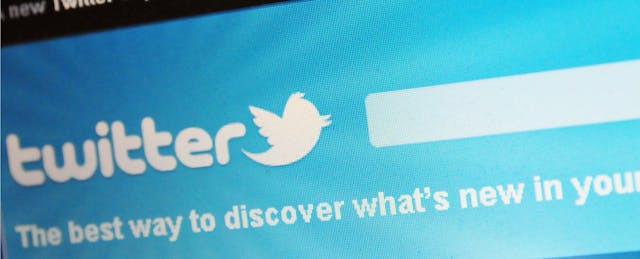Twitter has pledged to increase the “health” and “civility” of discourse on its platform, and it recently teamed up with college researchers to address the challenge. One of those scholars even argues that a dose of incivility can be healthy for democracy—in certain situations.
Healthy is not a word often used to describe conversations on Twitter and other social-media platforms these days. As technology companies struggle to respond to an increasingly polarized social-media environment, many are wrestling with how to best play a more proactive role in halting the spread of false and intentionally-misleading information spread by groups hoping to shape public perceptions and even the outcome of elections.
Late last month Twitter announced that it would fund two teams of scholars to examine conversation trends on its platform, and a big part of that effort is trying to measure and analyze the pervasiveness of incivility and intolerance in the platform’s short-form messages.
“If you want to improve something, you must be able to measure it,” said Twitter officials in a blog post about the effort, paraphrasing the famous quote by business guru Peter Drucker.
The announcement points out that one of the research teams plans to develop two sets of metrics to quantify discussion patterns. One will look at how frequently users are exposed to and interact with diverse viewpoints on Twitter, and another will focus on measuring intolerance and incivility.
The scholars stress that they are not working for Twitter, that they won’t have real-time access to Twitter data (which will also be anonymized) and that the research builds on other work they’ve done analyzing online discourse.
“There is a big misconception by some people that we are developing monitoring algorithms, but this is not what we are doing,” says Patricia Rossini, a research associate at Syracuse University who is serving on the research team. “We are trying to understand discussion dynamics.”
Rebekah Tromble, an assistant professor of political science at Leiden University, in the Netherlands, puts it this way: “The purpose of our research isn’t to allow Twitter to flag and then act on specific posts—and Twitter hasn’t asked us for that. Instead, our research is designed to give the company a more precise and concrete sense of the challenges they are facing.”
For the researchers, key questions include how conversations about contentious topics differ from those of non-contentious ones, and how the experiences of Twitter users shape how they perceive conversations on controversial subjects.
“For example, if I make an argument in favor of gun rights on Twitter, how likely am I to consider the claims of gun control advocates when I discuss the issue—and vice versa?” says Tromble.
Incivility as Rhetorical Device
The group is also interested in taking a more-nuanced look at contentious conversations on Twitter, trying to separate messages that lack civility from those that are more menacing.
“Incivility and intolerance often get lumped together when we talk about the state of online political discourse—they are taken as one and the same, or at least two sides of the same coin.” says Rossini. “But while intolerance is inherently threatening to democratic norms, incivility is not necessarily harmful or problematic. For example, sometimes people expose their ideas and perspectives in uncivil ways—which may not be necessarily perceived as offensive—as a means of trying to get others’ attention.”
Rossini says that some research even shows that voters might have improved memories of political discussion when politicians break typical norms of polite speech.
“One of our aims is to better understand when and in what ways incivility could be problematic for Twitter users and when and why it might not be,” she continues.
The research hasn't yet started (work will begin in the fall, and full results are expected in about a year). But following the announcement of the research by Twitter, several right-leaning media organizations ran articles that pointed out that some of the researchers, including Tromble, had previously Tweeted anti-Trump sentiments on their personal accounts, and critics of the researchers argue that their personal views will bias their work. The researchers also received threatening Tweets and messages.
“The abuse and harassment the lead female researchers are receiving is exactly why this work is important,” a Twitter spokesperson told Fox News. “Everything we do together in the coming months—including their [proposal], findings and measurement—will be peer-reviewed and made public so that everyone can assess and learn from what is discovered."


